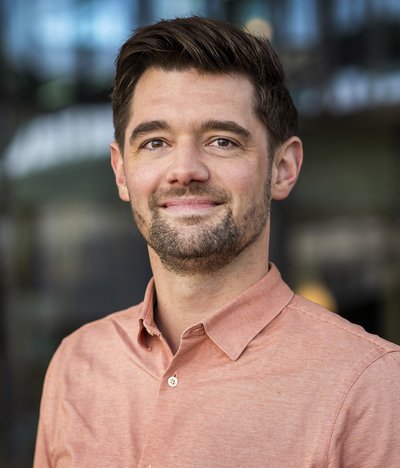Fons van der Sommen
Department / Institute
Group

RESEARCH PROFILE
Fons van der Sommen is an associate professor at the research group Video Coding & Architectures of the department of Electrical Engineering. He is a passionate scientist and educator, holding a MSc. in Electrical Engineering (2012, cum laude) and a PhD in Computer Vision (2017, cum laude). Driven by a personal tragedy, a passion for science and a desire to contribute to this world, he applies his understanding of machine learning and computer vision in healthcare, where he aims to develop novel assistive technologies for medical doctors, helping them with early diagnosis and effective treatment of disease.
In particular, in the field of Medical Image Analysis, Van der Sommen's research focuses on Computer-Aided Detection and Diagnosis (CADe/CADx) for oncology, striving to increase the detection rates and early diagnosis of developing cancer -- thereby vastly increasing the chances of survival for patients. Towards this goal, he works closely with medical specialists in an interdisciplinary team, aiming to translate medical domain knowledge into technical algorithms and vice versa.
In the fight against cancer, we need to make sure the medical specialists have the right 'weapons'.
ACADEMIC BACKGROUND
Fons van der Sommen studied Electrical Engineering at Eindhoven University of Technology (TU/e, the Netherlands) where he obtained his MSc in 2012 with the distinction cum laude. The year before his father had died of cancer, with motivated him to investigate the feasibility of an algorithm for the computer-aided detection of esophageal cancer. This resulted in three publications on international conferences. Following his Master's studies Van der Sommen continued to work on computer vision methods for esophageal cancer detection in collaboration with the Catharina Hospital (Eindhoven) while pursuing a PhD degree. In 2017 he obtained his doctorate with his thesis 'Computer-aided detection of early Barrett's cancer', again with the distinction cum laude. In 2018, after having been a postdoctoral researcher at TU/e for a year, he was appointed assistant professor at the research group Video Coding & Architectures of the TU/e department of Electrical Engineering. That same year he was awarded the TU/e PhD thesis prize.
Recent Publications
-
Tim J.M. Jaspers,Tim Boers,Koen Kusters,Martijn R. Jong,Jelmer B. Jukema,Albert J. de Groof,Jacques J.G.H.M. Bergman,Peter H.N. de With,Fons van der Sommen
Robustness evaluation of deep neural networks for endoscopic image analysis
Medical Image Analysis (2024) -
Tim J. Schoonbeek,Tim Houben,Hans Onvlee,Peter H.N. de With,Fons van der Sommen
IndustReal
(2024) -
Cris H.B. Claessens,J.J.M. Hamm,Christiaan G.A. Viviers,Joost Nederend,D.J. Grünhagen,Pieter J. Tanis,Peter H.N. de With,Fons van der Sommen
Evaluating task-specific augmentations in self-supervised pre-training for 3D medical image analysis
(2024) -
Luis A. Zavala Mondragon,Fons van der Sommen,Peter H.N. de With
A Signal Processing Interpretation of Noise-Reduction Convolutional Neural Networks
IEEE Signal Processing Magazine (2023) -
Tim J.M. Jaspers,Tim Boers,Koen Kusters,Martijn R. Jong,Jelmer B. Jukema,Albert J. (Jeroen) de Groof,Jacques J.G.H.M. Bergman,Peter H.N. de With,Fons van der Sommen
Investigating the Impact of Image Quality on Endoscopic AI Model Performance
(2023)
Current Educational Activities
Ancillary Activities
No ancillary activities